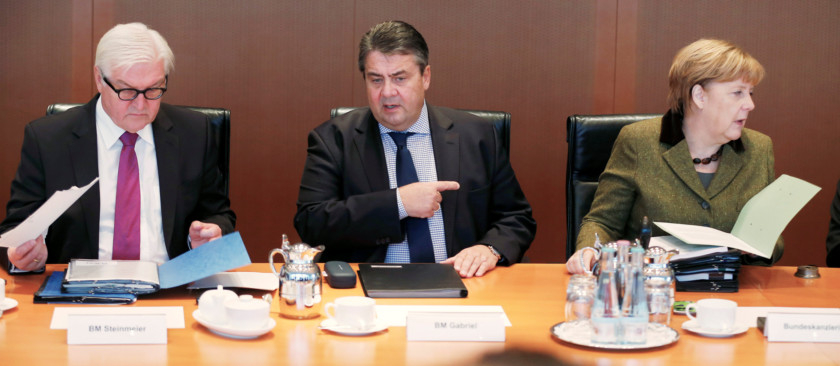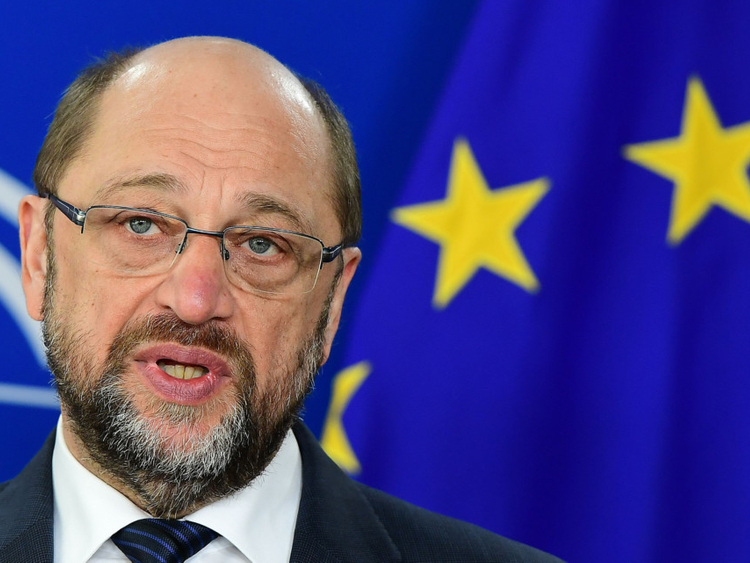
Martin Schulz can speak himself into rage when talking about the responsibilities of European Union (EU) member states. The President of the European Parliament has repeatedly criticised members for their lack of solidarity, their habit of systematically blaming Europe for everything that’s going wrong. “It’s not the European Union that has failed, but the member states themselves,” Schulz, a member of Germany’s Social Democratic Party (SDP), has declared on more than one occasion.
Now the German politician wants to switch stage and take his show straight to the national level. Schulz recently announced that for next year’s parliamentary elections, he will run for the first time as the No 1 candidate on the SPD’s Westphalian list, setting the stage for him to enter the German Bundestag. Doing so will require him to perform a tricky balancing act. In a decidedly anti-European moment, the 60-year-old politician is pro-Europe like no other. Can a man like this even do national politics at all?
Schulz has contributed to Europe becoming more visible than ever. He was a decisive factor in giving a democratic mandate to the European Commission by making, for the first time, two top candidates line up and run for the Commission presidency. Schulz lost the vote, with Europeans choosing Jean-Claude Juncker, the candidate from the conservative European People’s Party who also belongs to the Christian Democratic Union of Germany (CDU) and Christian Social Union in Bavaria (CSU). Nevertheless, Schulz was far from feeling like a loser. In the end, Europe now had an executive branch bold enough to make a political difference.
When it comes to the long list of conflicts between Brussels and Berlin, Schulz, as a national politician, will have to put his cards on the table. Berlin is fighting rigorously for strict austerity, against more solidarity when guaranteeing savings deposits, as well as giving Brussels more influence over energy policies.
Social Democrats in Europe hope Schulz can be their point person in Berlin, the Continent’s most influential capital. He agrees when it comes to the euro-stability-rules. But he also understands the southern states that are denouncing the austerity measures that they have been burdened with by members of the monetary union. During the last election campaign, Schulz openly championed the euro bonds that the German government had fully rejected.
But Schulz is also a pragmatist. As the head of the European Parliament, he has always preferred battles he could be sure to win. He cultivates a European vision, but he doesn’t suffer from the reflex of putting forth Europe as the solution to every problem. He distinguishes himself, in that way, from many other committed Europeans.
That’s another reason why people think he’s capable of pretty much anything, even some day becoming chancellor. Until recently, Schulz had positively ruled out a move toward Berlin. “I don’t want to be federal minister. I don’t want to be fraction leader,” he said. “I represent no threat whatsoever.”
That has all changed now. Some speak of him already as a potential candidate for the German Foreign Ministry who will be fighting, from Berlin, for a stronger Europe. “Martin Schulz has more international experience than many other politicians who have occupied the office of the German Foreign Ministry. It would be a good fit,” says Elmar Brok (CDU), a member of the European Parliament.
Schulz is a political force, spurred by a kind of camera-friendly self-confidence. Says Herbert Reul, head of the CDU/CSU-group in the EU legislature: “Martin Schulz has given the European Parliament a face.” His next trick is to see where that leads him in Berlin.
— Worldcrunch 2016/New York Times News service











